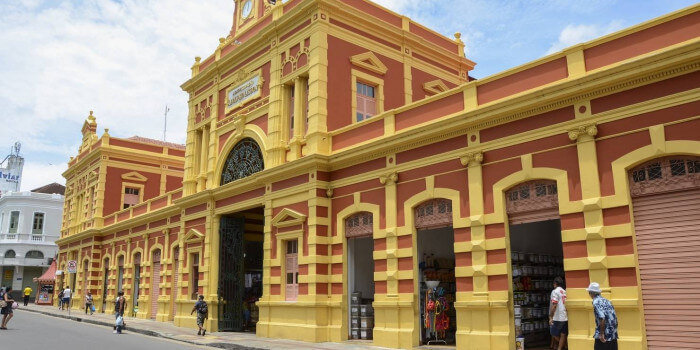Casa do albergado de manaus ( 04.312.401/0004-80 casa do albergado de manaus manaus – Casa do Albergado de Manaus, often simply referred to as “Casa do Albergado,” has a rich history that dates back to its inception. Established as a part of Brazil’s criminal justice system, it was founded with the vision of not just punishing offenders but also rehabilitating and reintegrating them into society. This approach aligns with the broader shift in criminal justice systems worldwide, moving away from punitive measures towards a more rehabilitative and restorative justice model.
The institution’s journey began with the construction of its premises, located strategically in Manaus, the capital city of the Amazonas state. The city’s unique cultural and geographic characteristics make it a distinctive backdrop for the Casa do Albergado’s operations, offering a blend of challenges and opportunities for its residents.
A Historical Perspective
To understand Casa do Albergado de Manaus fully, we must delve into its history. It was established in response to a growing need for a different approach to criminal justice in Brazil. The old ways of punitive justice, focusing solely on incarceration and punishment, were deemed ineffective in addressing the underlying causes of criminal behavior.

Thus, Casa do Albergado emerged as a beacon of change, aiming to provide a supportive and rehabilitative environment for those entangled in the criminal justice system. The year of its founding, 2004, marked the beginning of a new era in criminal justice in Manaus and the broader Amazonas region.
The Unique Location
Casa do Albergado’s strategic location in Manaus is essential to its role in the rehabilitation and reintegration process. Manaus, situated in the heart of the Amazon rainforest, is a city unlike any other in Brazil. Its unique blend of cultural diversity and natural beauty is a double-edged sword, offering both challenges and opportunities for the institution and its residents.
Challenges
- Remote Location: Manaus’s remote location poses logistical challenges, making it difficult for residents to maintain contact with their families, which is vital for their rehabilitation.
- Economic Disparities: The Amazon region faces economic disparities, which can contribute to criminal behavior. Casa do Albergado must address these disparities and help residents find legitimate economic opportunities.
- Cultural Sensitivity: Understanding and respecting the cultural diversity of the Amazonas state is crucial. Many residents come from indigenous backgrounds, and it’s essential to provide culturally sensitive rehabilitation programs.
Opportunities
- Natural Resources: Manaus is surrounded by the Amazon rainforest, offering opportunities for residents to learn about sustainable practices and develop new skills related to forestry and eco-tourism.
- Community Engagement: The close-knit communities in Manaus can be leveraged to provide support and mentorship for residents, aiding in their reintegration into society.
- Cultural Enrichment: The city’s vibrant cultural scene can be utilized to introduce residents to various art forms, helping them explore new interests and talents.
Rehabilitation Programs
Casa do Albergado de Manaus offers a range of rehabilitation programs designed to address the multifaceted needs of its residents. These programs aim to equip individuals with the skills and mindset necessary to lead productive lives upon their release.
1. Education and Skill Development
Education is a cornerstone of rehabilitation at Casa do Albergado. Residents are provided with opportunities to earn academic credentials, from basic literacy to vocational training. This not only enhances their employability but also fosters a sense of self-worth and purpose.
2. Psychological Support
Many residents have experienced trauma and struggle with mental health issues. Casa do Albergado provides access to counseling and therapy services to address these concerns. A team of psychologists and social workers work closely with residents to help them overcome their emotional challenges.
3. Substance Abuse Treatment
Substance abuse often plays a significant role in criminal behavior. Casa do Albergado offers substance abuse treatment programs to help residents break free from addiction and develop healthier coping mechanisms.
4. Work Release Programs
To facilitate reintegration into the workforce, Casa do Albergado collaborates with local businesses and organizations to provide work release programs. Residents can gain valuable work experience and build professional connections during their time at the institution.
5. Restorative Justice Initiatives
Casa do Albergado promotes restorative justice, emphasizing the importance of repairing harm caused by criminal actions. Residents participate in restorative justice programs that encourage them to take responsibility for their actions and seek reconciliation with victims and the community.
Success Stories
The effectiveness of Casa do Albergado’s rehabilitation programs can be seen in the success stories of its former residents. Many individuals who once faced bleak futures have transformed their lives after completing their sentences at the institution.
One such success story is that of Marcelo (name changed for privacy), who entered Casa do Albergado as a young man with a history of drug addiction and criminal activity. Through the support and guidance of the institution’s programs, Marcelo not only conquered his addiction but also earned a vocational certification in carpentry. Today, he runs his carpentry business and serves as a mentor to other residents, proving that rehabilitation and reintegration are indeed possible.
Challenges and Future Directions
While Casa do Albergado de Manaus has made significant strides in rehabilitating and reintegrating offenders, it faces ongoing challenges in its mission. These challenges include:

- Overcrowding: The institution often struggles with overcrowding, limiting its ability to provide personalized attention to each resident.
- Limited Resources: Adequate funding and resources are crucial for the success of rehabilitation programs. Casa do Albergado must continue advocating for increased support to expand its impact.
- Post-Release Support: Ensuring that individuals continue their rehabilitation journey after their release is a complex challenge. Casa do Albergado is exploring ways to provide ongoing support to former residents.
- Community Integration: Despite efforts, some residents still face stigma and difficulties in reintegrating into their communities. Promoting greater acceptance and understanding in society is an ongoing endeavor.
As Casa do Albergado de Manaus looks to the future, it remains committed to its mission of rehabilitation and reintegration. The institution is exploring innovative approaches, such as partnerships with local businesses and NGOs, to enhance its programs and create more success stories like Marcelo’s.
Conclusion
Casa do albergado de manaus ( 04.312.401/0004-80 casa do albergado de manaus manaus stands as a beacon of hope and change in the criminal justice landscape of Brazil. Its dedication to rehabilitation and reintegration, coupled with its unique location in Manaus, sets it apart as a transformative institution. While challenges persist, the success stories emerging from Casa do Albergado serve as a testament to the power of rehabilitation and the potential for positive change in the lives of individuals entangled in the criminal justice system.
As society continues to evolve towards a more compassionate and restorative approach to justice, Casa do Albergado de Manaus remains at the forefront, nurturing rehabilitation and reintegration, one individual at a time.
